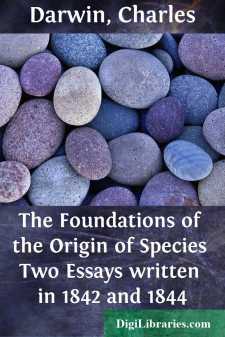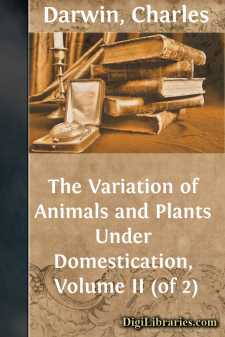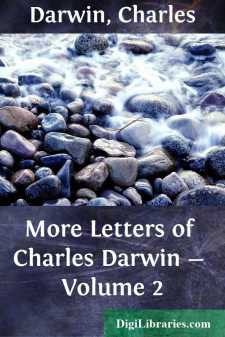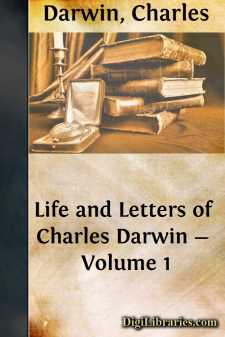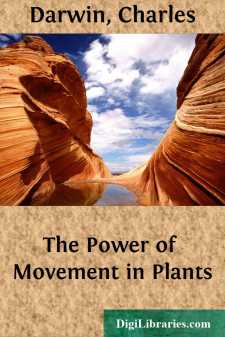Categories
- Antiques & Collectibles 13
- Architecture 36
- Art 48
- Bibles 22
- Biography & Autobiography 813
- Body, Mind & Spirit 142
- Business & Economics 28
- Children's Books 14
- Children's Fiction 11
- Computers 4
- Cooking 94
- Crafts & Hobbies 4
- Drama 346
- Education 46
- Family & Relationships 57
- Fiction 11829
- Games 19
- Gardening 17
- Health & Fitness 34
- History 1377
- House & Home 1
- Humor 147
- Juvenile Fiction 1873
- Juvenile Nonfiction 202
- Language Arts & Disciplines 88
- Law 16
- Literary Collections 686
- Literary Criticism 179
- Mathematics 13
- Medical 41
- Music 40
- Nature 179
- Non-Classifiable 1768
- Performing Arts 7
- Periodicals 1453
- Philosophy 64
- Photography 2
- Poetry 896
- Political Science 203
- Psychology 42
- Reference 154
- Religion 513
- Science 126
- Self-Help 84
- Social Science 81
- Sports & Recreation 34
- Study Aids 3
- Technology & Engineering 59
- Transportation 23
- Travel 463
- True Crime 29
Charles Darwin
Charles Darwin was an English naturalist and biologist best known for his contributions to the science of evolution. He proposed the theory of natural selection, which posits that species evolve over time through the survival and reproduction of individuals best suited to their environments. His seminal work, "On the Origin of Species," published in 1859, revolutionized the way we understand the development of life on Earth.
Author's Books:
Sort by:
by:
Charles Darwin
INTRODUCTION We know from the contents of Charles Darwin’s Note Book of 1837 that he was at that time a convinced Evolutionist. Nor can there be any doubt that, when he started on board the Beagle, such opinions as he had were on the side of immutability. When therefore did the current of his thoughts begin to set in the direction of Evolution? We have first to consider the factors that made for such...
more...
by:
Charles Darwin
The subject of inheritance is an immense one, and has been treated by many authors. One work alone, 'De l'Hérédité Naturelle,' by Dr. Prosper Lucas, runs to the length of 1562 pages. We must confine ourselves to certain points which have an important bearing on the general subject of variation, both with domestic and natural productions. It is obvious that a variation which is not...
more...
by:
Charles Darwin
LETTER 378. J.D. HOOKER TO CHARLES DARWIN. Kew, January 20th, 1867. Prof. Miquel, of Utrecht, begs me to ask you for your carte, and offers his in return. I grieve to bother you on such a subject. I am sick and tired of this carte correspondence. I cannot conceive what Humboldt's Pyrenean violet is: no such is mentioned in Webb, and no alpine one at all. I am sorry I forgot to mention the stronger...
more...
by:
Charles Darwin
PREFACE. My duty, in acknowledging the great obligations under which I lie to many naturalists, affords me most sincere pleasure. I had originally intended to have described only a single abnormal Cirripede, from the shores of South America, and was led, for the sake of comparison, to examine the internal parts of as many genera as I could procure. Under these circumstances, Mr. J. E. Gray, in the most...
more...
by:
Charles Darwin
He became much tired in the evenings, especially of late years, when he left the drawing-room about ten, going to bed at half-past ten. His nights were generally bad, and he often lay awake or sat up in bed for hours, suffering much discomfort. He was troubled at night by the activity of his thoughts, and would become exhausted by his mind working at some problem which he would willingly have...
more...
by:
Charles Darwin
After having been twice driven back by heavy south-western gales, Her Majesty's ship Beagle" a ten-gun brig, under the command of Captain Fitz Roy, , sailed from Devonport on the 27th of December, 1831. The object of the expedition was to complete the survey of Patagonia and Tierra del Fuego, commenced under Captain King in 1826 to 1830--to survey the shores of Chile, Peru, and of some islands...
more...
by:
Charles Darwin
The controversy respecting the nature and the extent of the differences in the structure of the brain in man and the apes, which arose some fifteen years ago, has not yet come to an end, though the subject matter of the dispute is, at present, totally different from what it was formerly. It was originally asserted and re-asserted, with singular pertinacity, that the brain of all the apes, even the...
more...
by:
Charles Darwin
INTRODUCTION. THE chief object of the present work is to describe and connect together several large classes of movement, common to almost all plants. The most widely prevalent movement is essentially of the same nature as that of the stem of a climbing plant, which bends successively to all points of the compass, so that the tip revolves. This movement has been called by Sachs "revolving...
more...
by:
Charles Darwin
CAMBRIDGE 1828-1831. After having spent two sessions in Edinburgh, my father perceived, or he heard from my sisters, that I did not like the thought of being a physician, so he proposed that I should become a clergyman. He was very properly vehement against my turning into an idle sporting man, which then seemed my probable destination. I asked for some time to consider, as from what little I had heard...
more...
by:
Charles Darwin
My dear Lyell, I send a letter from Asa Gray to show how hotly the battle rages there. Also one from Wallace, very just in his remarks, though too laudatory and too modest, and how admirably free from envy or jealousy. He must be a good fellow. Perhaps I will enclose a letter from Thomson of Calcutta; not that it is much, but Hooker thinks so highly of him… Henslow informs me that Sedgwick...
more...


